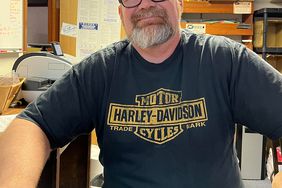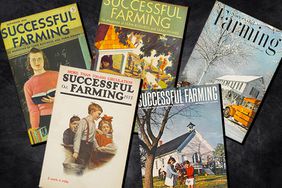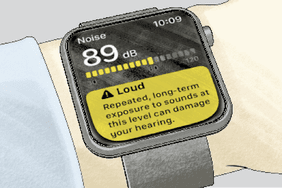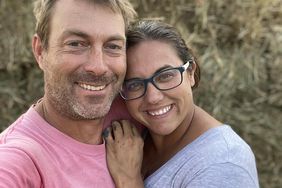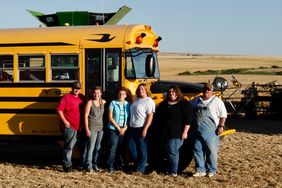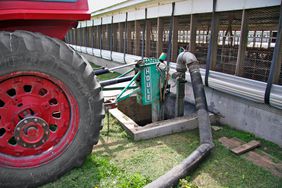:max_bytes(150000):strip_icc()/2937120three20men20consoling-2-8cc2c2ee34644c57b9d894636a7b7d24.jpg)
When someone stops breathing and is suffering cardiac arrest, that person's life may be saved by a bystander trained in CPR. Likewise, when someone is facing a potential suicide crisis, that life may be saved by a friend who has been trained in QPR.
The "Question, Persuade, Refer" method is an emergency mental health intervention intended to identify and interrupt a suicide crisis and direct the affected person to the proper care.
Both CPR and QPR fill the gap between the moment of crisis and the arrival of professional care by following a prescribed series of steps.
Farmers and their allies can learn the QPR method of suicide prevention by attending a free online webinar, "QPR for Farmers and Farm Families," from the AgriSafe Network. Check the schedule here.
AgriSafe has seven certified QPR trainers, including Tara Haskins, the total farmer health director for AgriSafe Network, and Amanda Stone, assistant professor and Extension dairy specialist for Mississippi State University.
Upon completion, attendees will be designated as QPR-trained Gatekeepers, which means they recognize the warning signs of suicide, know how to offer hope, and can get professional help for the person in need.
"You don't have to be a nurse," Stone says.
"All of us have a role in helping producers."
"We are not intending to make you into a counselor or therapist, but to offer hope through positive action," Haskins says. "Research has shown us that laypeople can be very effective in encouraging others to get to treatment."
Acknowledging The Culture of Farming
This training goes beyond typical QPR training to include information specific to farmers.
"Knowing the stressors associated with farm life and culture should inform how to Question, Persuade, and Refer anyone you may speak with about their mental health or suicidal ideations," Stone says. "We're going to let you walk a mile in a farmer's shoes."
The rate of suicide and self-harm among farmers is nearly twice that of the general population, she says. Contributing factors include long hours, physically demanding work, unpredictable income, factors out of the farmer's control, isolation, pressure to keep the farm in the family, and an identity closely tied to being a farmer.
"Losing the farm or the threat of not being able to pass it on to future generations can really equal the epitome of failure for the farmer," Stone says. "It's like they are losing themselves."
Because of the stigma some associate with mental health and the lack of local mental health care, many farmers resist seeking help. That makes it even more important for family members and friends of farmers to be aware of symptoms that could point to a potential suicide crisis.
"Rugged individualism prevents help-seeking behavior," Stone says. Farmers may think that since their father or grandfather made it through hard times, they should be able to as well.
She says guns are often needed on the farm and are very easily accessible, which increases the lethal risk for self-harm or suicide.
Signs and Symptoms
Stone says the alarming rates of stress and depression in the industry can also increase the farmer's risk of injury and the likelihood of diseases such as cancer and diabetes. The first signs of stress or depression may be physical complaints such as headaches and abdominal pain.
Other signs that something's not right may include drinking more than usual and letting things go on the farm. If a farmer's shop is generally tidy, and you notice tools lying everywhere, he or she could be dealing with depression. "Step in when you feel like you need to step in," Stone says. "Don't leave the farm if you think something's going on with a farmer that you think could be detrimental. It's difficult to ask if they're considering suicide, but that needs to be asked."
Haskins agrees that asking that question is the hardest part. "You may not know the perfect words to say," she says. "You don't have to fill the space with words. Just ask open-ended questions and give them the time to talk. Your willingness to listen and to help can rekindle hope and make all the difference."
Seek Professional Help
Because QPR is intended to be a stopgap until professional help can be obtained, the webinar instructs Gatekeepers to store all the needed contact information in their phones, including suicide hotlines, local hospitals, and mental health professionals. This is something everyone can do.
"You may need to dial the phone for them," Haskins says. "Offer to ride along and wait in the parking lot while they go in and talk to someone."
People who are having suicidal thoughts feel a disconnect from their community. "QPR tries to reconnect them with people who care," Haskins says. "We need to look at suicide as a preventable death."
Host a Training Session
The 90-minute webinar includes many example scenarios, techniques for implementing QPR, and discussion with the presenters. AgriSafe can also provide face-to-face training in several states. Interested groups can submit a request here.
:max_bytes(150000):strip_icc()/LisaFoustPrater-5d5284849acc417c8678324f9c660161.jpg)


